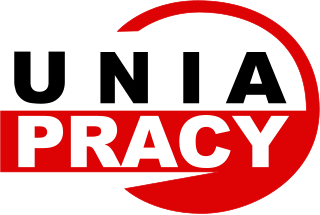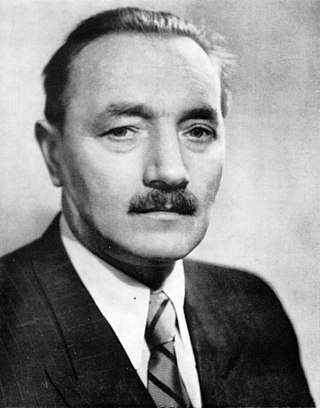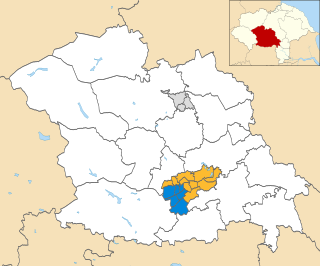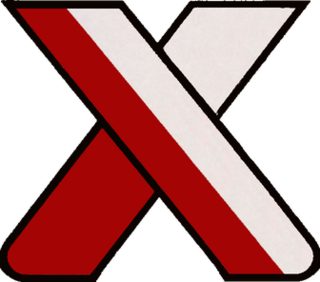Related Research Articles

The Democratic Left Alliance was a social-democratic political party in Poland. It was formed on 9 July 1991 as an electoral alliance of centre-left parties, and became a single party on 15 April 1999. It was the major coalition party in Poland between 1993 and 1997, and between 2001 and 2005, with four Prime ministers coming from the party: Józef Oleksy, Włodzimierz Cimoszewicz, Leszek Miller and Marek Belka. It then faded into opposition, overshadowed by the rise of Civic Platform and Law and Justice.

Labour Union is a minor social-democratic political party in Poland. It was a member of the Party of European Socialists (PES) until April 2022.
From 1989 through 1991, Poland engaged in a democratic transition which put an end to the Polish People's Republic and led to the foundation of a democratic government, known as the Third Polish Republic, following the First and Second Polish Republic. After ten years of democratic consolidation, Poland joined NATO in 1999 and the European Union on 1 May 2004.

The Social Democracy of Poland is a social-democratic political party in Poland.
Democratic Left Alliance-Labour Union was an electoral committee and a coalition of two Polish centre-left political parties: Democratic Left Alliance and Labour Union. At the national level, the alliance arose at the time of the 2001 parliamentary elections and continued through the 2004 elections to the European Parliament. The alliance came together again for the 2009 and 2014 European parliamentary elections.
Poland has a multi-party political system. On the national level, Poland elects the head of state – the president – and a legislature. There are also various local elections, referendums and elections to the European Parliament.

Parliamentary elections were held in Poland on 27 October 1991 to elect deputies to both houses of the National Assembly. The 1991 election was notable on several counts. It was the first parliamentary election to be held since the formation of the Third Republic, the first entirely free and competitive legislative election since the fall of communism, the first completely free legislative election of any sort since 1928. Due to the collapse of the Solidarity political wing, the Solidarity Citizens' Committee, the 1991 election saw deep political fragmentation, with a multitude of new parties and alliances emerging in its wake. Low voting thresholds within individual constituencies, along with a five percent national threshold allocated to a small portion of the Sejm, additionally contributed to party fragmentation. As a result, 29 political parties gained entry into the Sejm and 22 in the Senate, with no party holding a decisive majority. Two months of intense coalition negotiations followed, with Jan Olszewski of the Centre Agreement forming a minority government along with the Christian National Union, remnants of the broader Centre Civic Alliance, and the Peasants' Agreement, with conditional support from Polish People's Party, Solidarity list and other minor parties.

Parliamentary elections were held in Poland on 4 June 1989 to elect members of the Sejm and the recreated Senate, with a second round on 18 June. They were the first elections in the country since the communist government abandoned its monopoly of power in April 1989 and the first elections in the Eastern Bloc that resulted in the communist government losing power.

Jarosław Kalinowski is a Polish politician from the agrarian Polish People's Party (PSL).

Parliamentary elections were held in Poland on 26 October 1952. They were the first elections to the Sejm, the parliament of the Polish People's Republic. The official rules for the elections were outlined in the new Constitution of the Polish People's Republic and lesser acts.

Parliamentary elections were held in Poland on 21 October 2007. All 460 members of the Sejm and 100 senators of the Senate were elected. The largest opposition group, Civic Platform (PO), which soundly defeated the ruling Law and Justice (PiS) party and its allies. Throughout the campaign, polls showed conflicting results as to which of the two parties had the greater support, yet by the closing week the polls had swung in favour of Civic Platform. Three other political groups won election into the Sejm, the centre-left Left and Democrats coalition, the agrarian Polish People's Party, and the tiny German Minority group. Both of Law and Justice's former minor coalition partners, the League of Polish Families and the Self-Defense of the Republic of Poland suffered an enormous voter backlash, failing to cross the 5% electoral threshold in order to enter the Sejm. Consequently, both parties lost all of their seats.

The 2007 Harrogate Council election took place on 3 May 2007 to elect members of Harrogate Borough Council in North Yorkshire, England. One third of the council was up for election and the council stayed under no overall control.

The Latgalian Farmer-Labour Party, also known as the Latgalian Progressive Farmers, was a political party in Latvia during the inter-war period. The party contested elections in an alliance with several other parties under the name United List of Latgalian Small Landless Farmers and Latgalian Labour Party. It was led by Jezups Trasuns.

The Polish-Catholic Latvian Union of Poles was a political party in Latvia during the inter-war period. It was led by Jānis Veržbickis.

The National Workers' Party was a political party in Poland.

Christian Democracy was a political alliance in Poland.

The Labour Party is a minor political party in Poland. It was formally called the Christian-Democratic Labour Party(Polish: Chrześcijańsko-Demokratyczne Stronnictwo Pracy, ChDSP) between 1989 and 2000. The party continued the traditions of the pre-war Labor Party, which ceased its activities in Poland in 1946. This made the party be considered a historical formation, together with the Polish Socialist Party.

Party X was a political party in Poland. The party was founded shortly after the 1990 presidential elections by Stanisław Tymiński, a dark horse candidate who received the second highest number of votes in the first round, qualifying for the second round and challenging, albeit unsuccessfully, popular trade union activist Lech Wałęsa. Party X was Tymiński's personal party and sought to emulate his populist rhetoric, presenting itself as an anti-establishment outsider party. The party proposed a new economic system in Poland called "labour capitalism" based on rejecting the influence and capital of both the United States and Russia in favour of reinforcing the 'economic sovereignty' of Poland and turning Poland into a 'utopia of smallholders' through a modernisation program. At the same time, it criticised neoliberalism and deregulation.
The United Left was a political and electoral alliance of political parties in Poland.

Parliamentary elections were held in Poland on 13 October 2019. All 460 members of the Sejm and 100 senators of the Senate were elected. The ruling right-wing Law and Justice (PiS) won re-election to a second term retaining its majority in the Sejm. However, it lost its majority in the Senate to the opposition. With 43.6% of the popular vote, Law and Justice received the highest vote share by any party since Poland returned to democracy in 1989. The turnout was the highest for a parliamentary election since the first free elections after the fall of communism in 1989. For the first time after 1989, the ruling party controlled one house, while the opposition controlled the other.
References
- ↑ Dieter Nohlen & Philip Stöver (2010) Elections in Europe: A data handbook, p1509 ISBN 978-3-8329-5609-7